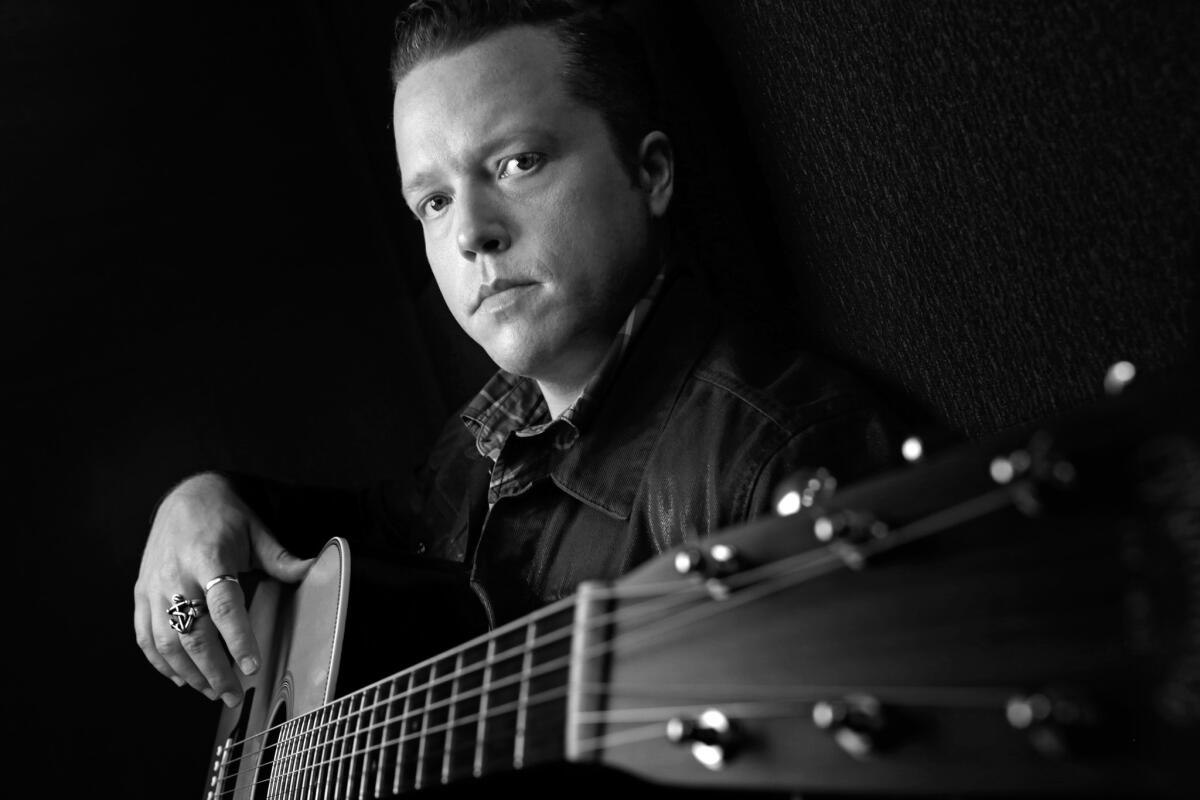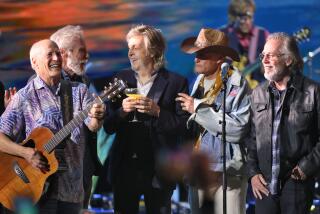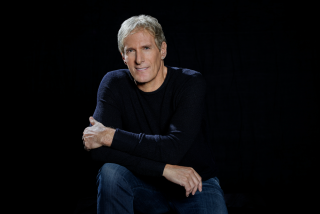The Sunday Conversation: A sobering change for singer Jason Isbell

Singer-songwriter Jason Isbell, who carved out a solo career after a stint with Alabama’s Drive-By Truckers band, is on tour for his new album, “Southeastern.” Accompanied by his musician wife, Amanda Shires, Isbell plays the Troubadour in West Hollywood on Sept. 15 and is part of a double bill with Tom Freund at Santa Barbara’s Lobero Theatre on Sept. 14.
“Southeastern” has been getting a lot of attention. Has this tour been different for you in any way?
Yeah, it seems to be more successful. There are a lot more people at the shows, and people seem to be very receptive to the new material, more so than they have been in the past.
PHOTOS: Celebrities by The Times
Why do you think that is?
I think I wrote a better record this time. I put a lot more time into it. I didn’t have so many distractions I might have had in the past. And the story that my life was following at that point in time and is following now is a pretty interesting story to people, I think.
Can you talk about that?
Sure. I quit drinking about a little over a year and a half ago now. I got engaged and wound up getting married two days after we finished this record. I even went back and did some final touches on Sunday after the wedding before we went on our honeymoon.
In several songs on the album, you write about your experience getting sober. What and who inspired you to do that?
I started realizing that I was drinking too much, and I knew that I was on my way to some kind of disaster. Over a couple of drunken nights, I expressed a desire to quit drinking and go to rehab, and I told Amanda, who’s now my wife. The first time I said it, she said, “Say it again, and I’m going to make sure it happens.” The second time I said it, she called a handful of people who she knew I had a lot of respect for and told them that was my plan, implicitly holding me to what I’d said. I wasn’t able to back out of it at that point.
Was one of them Ryan Adams?
Yeah. She called Ryan, she called my parents, she called my manager and a couple of other folks, and that was a difficult thing for her to do, because you don’t want anybody to see past the façade when you’re in those situations.
Do you credit sobriety with helping you grow artistically on this album?
It’s given me more time to work. I think the key to growing creatively is just doing the work, and it’s certainly taken away a lot of distractions. I used to spend six or eight hours drinking and another four to six hours recovering and then seven or eight hours of fitful sleep. That’s pretty much the whole day gone. Now I don’t have those urges.
Since you title your album “Southeastern,” presumably your Southern roots inform your music and your identity as a musician. Is that fair to say?
I think it’s fair. I think anybody who’s paying attention writes from a certain location, but it wasn’t actually the reason I named the album that. That came from a tool and die shop in Alabama that my dad worked at when I was very young. He came home with terrible stories; I thought of the place as a dungeon. So I wanted to reclaim that for my own purposes. But I’m never one to tell people that their interpretation of something is wrong.
TIMELINE: Summer’s must see concerts
Your grandfather and uncle were musicians, so did you grow up jamming with the family?
Sure. They weren’t professional musicians — my uncle made a little bit of money playing gigs around town, but for the most part they played music as a pastime and as a way to bond with the family. We’re all very close. Now I’ve realized I grew up playing music with my family as a form of child care, really. Because my parents would take me to my grandparents’ house and we were playing guitars and fiddles and banjos, and I think that in one way my grandfather was spending quality time with me, but I also think he was trying to keep me from breaking anything.
A friend of yours said that “being from Muscle Shoals [Alabama] was kind of like having a cool tattoo.” What was the music scene like when you were growing up and how did it help shape you?
There honestly isn’t much of a scene as far as a live music scene goes because the laws won’t allow it. When I was living there, you had to sell more food than alcohol at any establishment. You could not get a license to strictly be a bar or a club or a music venue. This turned out being really good for me when I was 14, 15, 16 years old, because my parents could take me to these restaurants, and a lot of the people who were playing there were the same people who’d recorded on the classic recordings that came out of the area.
I noticed that you have a tattoo on the inside of your left arm that looks like words.
It’s from “Boots of Spanish Leather,” the Bob Dylan song: “Just carry yourself back to me unspoiled, from across that lonesome ocean.” For me when I read those words, it has to do with travel and keeping something about yourself intact, not letting those pieces get pulled away as you make your way around the world.
More to Read
The biggest entertainment stories
Get our big stories about Hollywood, film, television, music, arts, culture and more right in your inbox as soon as they publish.
You may occasionally receive promotional content from the Los Angeles Times.






